Calico Pastoral Company’s small steps to success
The adage that bigger is better has been blown out of the water by young farmer Leo Tompkins, whose cattle business is booming on a hobby farm.
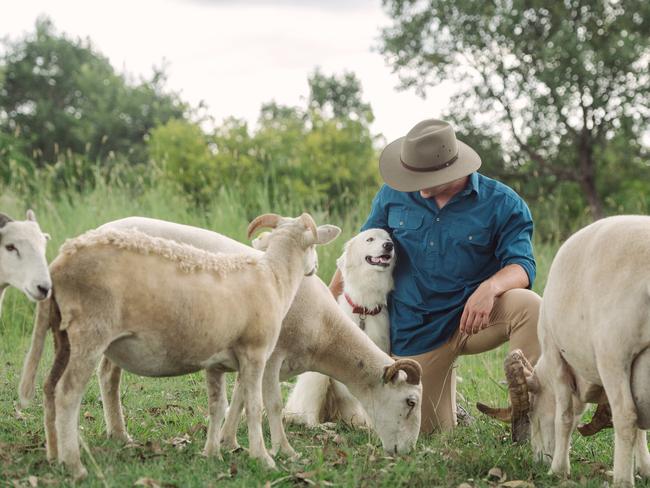
Leo Tompkins was not unlike many new farmers on small acreage when he first started out.
He often felt intimidated and anxious when asking for help in the industry and found he wasn’t taken seriously because his farm didn’t have size and scale.
His experience helped ignite a successful farm business, Calico Pastoral Company, on his family’s 10-hectare property at Gympie in southeast Queensland in 2020, producing stud and commercial cattle and sheep predominantly for homesteaders and hobby-farmer clients.
Leo’s passion for his farm, regenerative agriculture and the environment as well as his unique ability to relate strongly to his clients and their needs has seen the business flourish.
He plans to expand within the next 10 years and make a full-time living from the farm business.
“I took a chance and started my business and much to my surprise there was a lot of demand for the product I was supplying and the service I was providing my clients,” he said.
“Scale is great and it is something I want to obtain but there are a lot of people just wanting food independence and sovereignty, that want a unique and accessible product and that is what I provide them.”
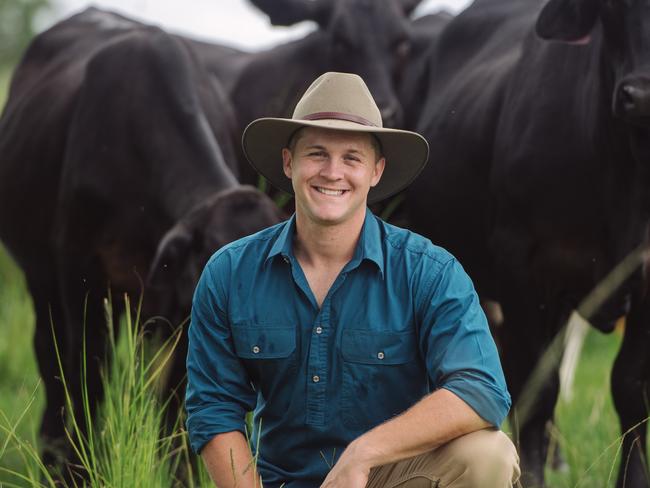
REGEN LEADS WAY
Leo, who currently works in the army and is studying agricultural science at Charles Sturt University via the Defence Assisted Study Scheme, always had a passion for farming and agriculture but also for the environment.
The 28-year-old uses regenerative and environmentally sustainable farming practices in the small but intensive operation, which includes 50 Wiltshire Horn stud sheep, eight to 10 Bazadais and Brangus stud cows and up to five bulls, depending on seasonal conditions.
“It is intensive and requires quite a bit of stock movement,” Leo said, adding his partner helps with stock work.
“We rotationally graze. It really relies on pasture management and forecasting and ensuring we have the right stock levels. We do a lot of pasture and soil testing, making sure we have good leaf cover and the nutrients and minerals are being taken up by the animals.”
Pastures are a native-based mix including rhodes and creeping bluegrass as well as an array of tropical legumes such as burgundy bean, clovers and depending on the season, lucerne, grazing herbs and forage cereals.
The property previously had a set-stocking program with traditional broad-spectrum fertiliser and chemical use but Leo has repealed much of that.
Riparian zones have been fenced off to prevent stock access and paddock sizes reduced to increase nutrient cycling while reducing compaction and soil disturbance.
Stocking rates have changed from 2.4 animal units per hectare to 6.5 per hectare.
“We have pushed our stocking rates further with environmentally sustainable practices but it requires a lot of labour,” Leo said.
“Since we have changed our grazing management we have found that our soil carbon levels have increased, which has also increased our water-holding capacity and by extension that will also increase the carbon sequestration of that soil.
“I’m very passionate about conservation and my environment. I want to make sure what we do is within best standing in the environment.”
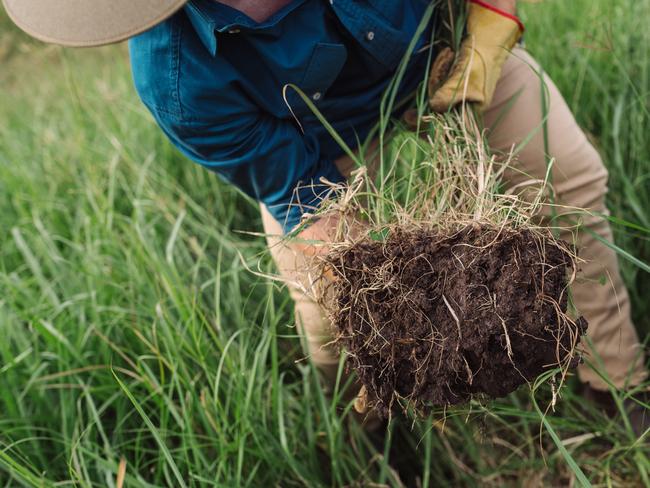
RESPECTING THE BALANCE
Working in tandem with nature, Calico Pastoral has been able to rebuild fragile and degraded ecosystems while remaining productive and profitable.
“We believe this is due to our ability to respect and maintain the fine balance between nature’s finite resources and agriculture’s often intensive needs,” Leo said.
“Our motto is conservationists then agriculturalists.”
Calico works with groups such as Koala Action Gympie Region, Mary River Catchment Coordinating Committee, Land for Wildlife and Gympie Landcare and is also committed to reducing, reusing and recycling waste in all forms.
“Although we are not certified organic we do firmly believe in a beyond-organic and holistic approach to livestock production, health, welfare and management,” Leo said.
“However, even though our livestock are all organically fed and pasture raised, we cannot be certified organic as we do immunise our livestock for preventable diseases.
“Where animal welfare and husbandry are concerned, we will never allow our livestock to endure undue suffering from easily preventable diseases just to maintain an organic certification.”
Calico uses minimal tillage and no synthetic fertilisers, opting for chemical-free solutions first.
Holistic management principles include integrated pest management systems to effectively manage livestock and ecosystems with rotational grazing, avoiding increased pest burdens in each paddock.
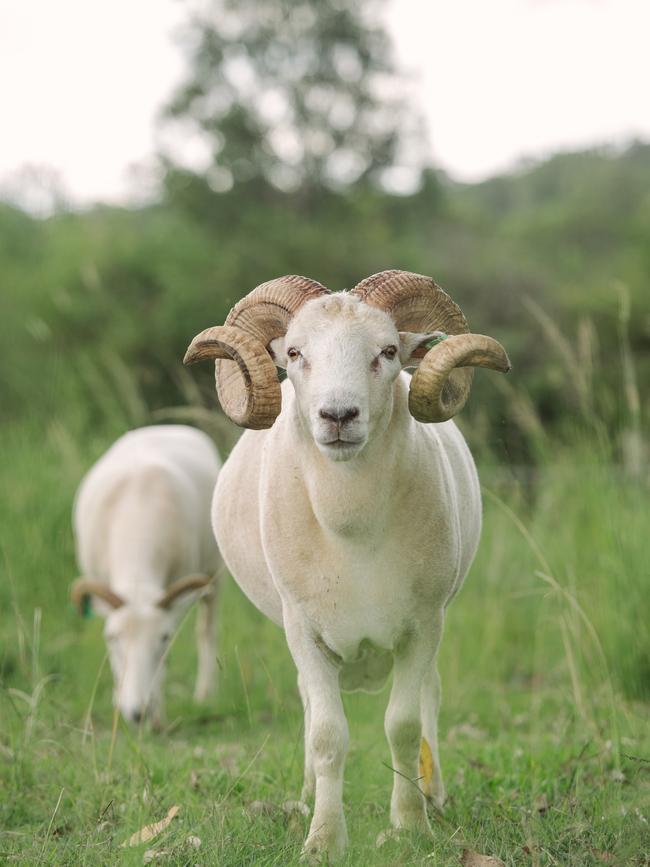
CAREFUL SELECTION
Leo said they had a selective livestock breeding program with a focus on parasite tolerance and resistance, conformation, productivity and environmental hardiness.
Calico produces tropically adapted and drought-tolerant F1 Brangadais cattle along with registered purebred Bazadais cattle, based on Carabeen blood, and Brangus based on Altona and Castle Brangus bloodlines.
“Our Brangadais cattle are low maintenance, resilient and highly productive,” Leo said.
“They have rapid growth achieving weights of 500kg at 12 to 14 months.”
Calico Pastoral is also a recognised sheep breeder with both the Australian Stud Sheep Breeders Association and Australian Wiltshire Horn Sheepbreeders Association.
Wiltshire Horns shed wool naturally, eliminating the hassle and expense of finding a shearer, making them particularly suitable for hobby farmers. Crutching, mulesing, docking, dipping or treating for lice or fly strike were also not necessary while lambing percentages averaged 180 per cent.
“They are truly a low-maintenance sheep,” Leo said.
Leo currently has about 20 local clients on rotation who purchase herd bulls or flock rams, semen or commercial animals for growing out.
“It is more profitable to be in breeding and weaning markets and selling those on and allowing producers with more scale and resources to do the feeding and backgrounding,” Leo said.
“We are also rapidly moving to an AI system for breeding, reducing the requirement for live bulls on farm as it increases our profitability and increases feed for our cows.”
CHANGE OF HORIZON
Calico Pastoral is positioned on the northern end of Mary Valley, a fertile, high rainfall area of 1000-1500mm a year. The region is becoming more commercialised with residential properties.
As part of his plans to expand, Leo is looking to buy more property in the Central Tablelands region of NSW.
“This has been the family home so it is hard to uproot the nostalgia and legacy I’ve got here but I have a bigger sense of purpose to my enterprise and animals that to expand will be beneficial,” he said.
“If I need to move further afield to grow my brand, product and philosophy then that is quite necessary and I’ve come to terms with that.
“Small businesses are like a living organism in themselves – you need to give it the due diligence it requires to make it thrive and make sure it is well looked after.”
Leo aims to expand his business on to about 800ha with 200 breeding cows and 1000 sheep.
“By using the smaller property as a stepping stone and making sure the model is sustainable and feasible, I have done it at a much lower risk and it means I can now build it up on a bigger scale to where it will be successful,” he said.
“While I am terrified at the extortionate land prices and capital required, I’ve become a lot more confident now. The industry wants and needs new farmers. It will be a long, hard slog but I think it will be worth it.”
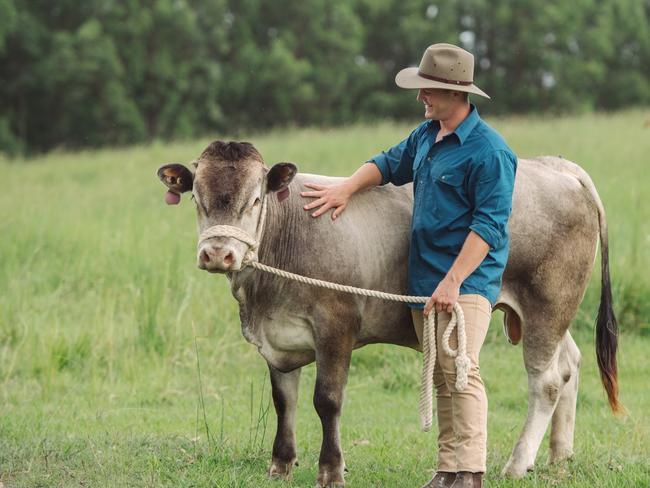
WARTS AND ALL
Strong communication and being fully transparent with clients, including listing stock prices on the website, has been the cornerstone of Calico’s success.
“Pricing. Yes, we show it,” Leo said.
“Why? We know how difficult and daunting it can be to start a new venture or purchase livestock, either for the first time or recurring.”
Cattle prices start from $3500 a head for females and $4000 for bulls, while ewes were priced from $850 a head and rams $900.
“One of my virtues is being able to communicate with small holders or homesteaders,” Leo said.
“It can feel intimidating to talk to larger producers or get into the industry but that is greatly reduced for them with me and with my passion for nature, for livestock, for farming, I feel I am quite effective at showing people my business.”
Leo said it was important for small-acre farmers to network.
“The more you can network and get that support from people, the greater your confidence will be. Yes it is daunting but if more and more small producers are going to go down that path, they can join together and feel supported and embraced.”




